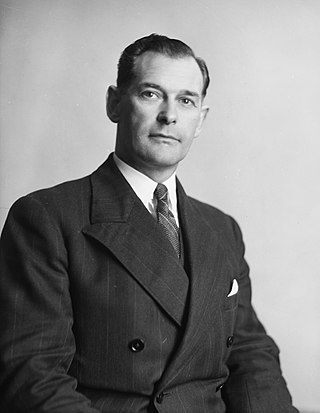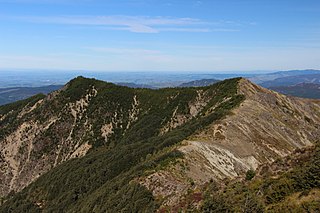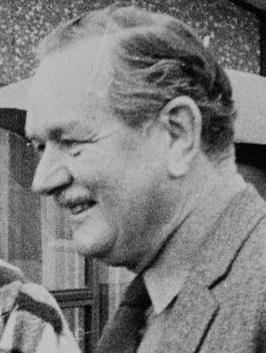
The national parks of New Zealand are protected natural areas administered by the Department of Conservation (DOC). The first national parks established in the country were all focused on mountain scenery. Since the 1980s the focus has been on developing a more diverse representation of New Zealand landscapes. The parks are all culturally significant and many also contain historic features. Tongariro National Park is one of the World Heritage Sites that are of both cultural and natural significance, while four of the South Island national parks form Te Wahipounamu, another World Heritage Site. There are currently 13 national parks; a 14th, Te Urewera National Park, was disestablished in 2014.

New Zealand is divided into sixteen regions for local government purposes. Eleven are administered by regional councils, and five are administered by unitary authorities, which are territorial authorities that also perform the functions of regional councils. The Chatham Islands Council is not a region but is similar to a unitary authority, authorised under its own legislation.

Sir Keith Jacka Holyoake, was a New Zealand politician who served as the 26th prime minister of New Zealand, serving for a brief period in 1957 and then from 1960 to 1972, and also as the 13th governor-general of New Zealand, serving from 1977 to 1980. He is the only New Zealand politician to have held both positions.

The New Zealand Parliament is the unicameral legislature of New Zealand, consisting of the Sovereign (King-in-Parliament) and the New Zealand House of Representatives. The King is usually represented by his governor-general. Before 1951, there was an upper chamber, the New Zealand Legislative Council. The New Zealand Parliament was established in 1854 and is one of the oldest continuously functioning legislatures in the world. It has met in Wellington, the capital of New Zealand, since 1865.

ACT New Zealand, also known as the ACT Party or simply ACT, is a right-wing, classical-liberal and conservative political party in New Zealand. It is currently led by David Seymour, and is in coalition with the National and New Zealand First parties, as part of the Sixth National government.
This is a timeline of environmental history of New Zealand. It includes notable events affecting the natural environment of New Zealand as a result of human activity.

Margaret Anne Wilson is a New Zealand lawyer, academic and former Labour Party politician. She served as Attorney-General from 1999 to 2005 and Speaker of the House of Representatives from 2005 to 2008, during the Fifth Labour Government.

Capital Hill is the location of Parliament House, Canberra, at the south apex of the land axis of the Parliamentary Triangle.

Protected areas of New Zealand are areas that are in some way protected to preserve their environmental, scientific, scenic, historical, cultural or recreational value. There are about 10,000 protected areas, covering about a third of the country. The method and aims of protection vary according to the importance of the resource and whether it is publicly or privately owned.

Conservation park is a type of specially protected status for land held by the Crown in New Zealand for conservation purposes. The status is set up under the Conservation Act 1987 and the parks are administered by the Department of Conservation (DoC).

The Parliament of the Cook Islands is the legislature of the Cook Islands. Originally established under New Zealand administration, it became the national legislature upon independence in 1965.

The governor-general of New Zealand is the representative of the monarch of New Zealand, currently King Charles III. As the King is concurrently the monarch of 14 other Commonwealth realms and lives in the United Kingdom, he, on the advice of his New Zealand prime minister, appoints a governor-general to carry out his constitutional and ceremonial duties within the Realm of New Zealand.

The Homosexual Law Reform Act 1986 is a New Zealand Act of Parliament that broadly legalised consensual sex between men as well as anal sex regardless of partners' gender. It removed the provisions of the Crimes Act 1961 that criminalised this behaviour. The legislation established a uniform age of consent, setting it at 16 for both same-sex and opposite-sex partners.

The Conservation Act 1987 is New Zealand's principal act concerning the conservation of indigenous biodiversity. The Act established the Department of Conservation and Fish and Game, and complements the National Parks Act 1980 and the Reserves Act 1977.

The Minister of Conservation is a minister in the New Zealand Government with responsibility for promoting conservation of the natural and historic heritage of New Zealand.

Air Commodore Thomas Francis Gill, was a New Zealand air force pilot and politician. He flew with the Royal Air Force throughout the Second World War and afterwards served with the Royal New Zealand Air Force until 1969. He entered Parliament as a National Party MP in 1969 and served as a cabinet minister from 1975 to 1980, when he resigned to become New Zealand's Ambassador to the United States.
The following lists events that happened during 2011 in New Zealand.

Christopher Aidan Penk is a New Zealand politician who has been a Member of Parliament in the House of Representatives for the National Party since 2017.

The 53rd New Zealand Parliament was a meeting of the legislature in New Zealand. It opened on 25 November 2020 following the 17 October 2020 general election, and dissolved on 8 September 2023 to trigger the next election. It consisted of 120 members of Parliament (MPs) with five parties represented: the Labour and Green parties, in government, and the National, Māori and ACT parties, in opposition. The Sixth Labour Government held a majority in this Parliament. Jacinda Ardern continued as prime minister until her resignation on 25 January 2023; she was succeeded by Chris Hipkins.

George Willoughby Moke Norrie, 2nd Baron Norrie is a British peer and environmentalist. He piloted important legislation on national parks and statutory swimming to promote water safety for school age children. He has a long track record as a champion of the environmental voluntary sector.















